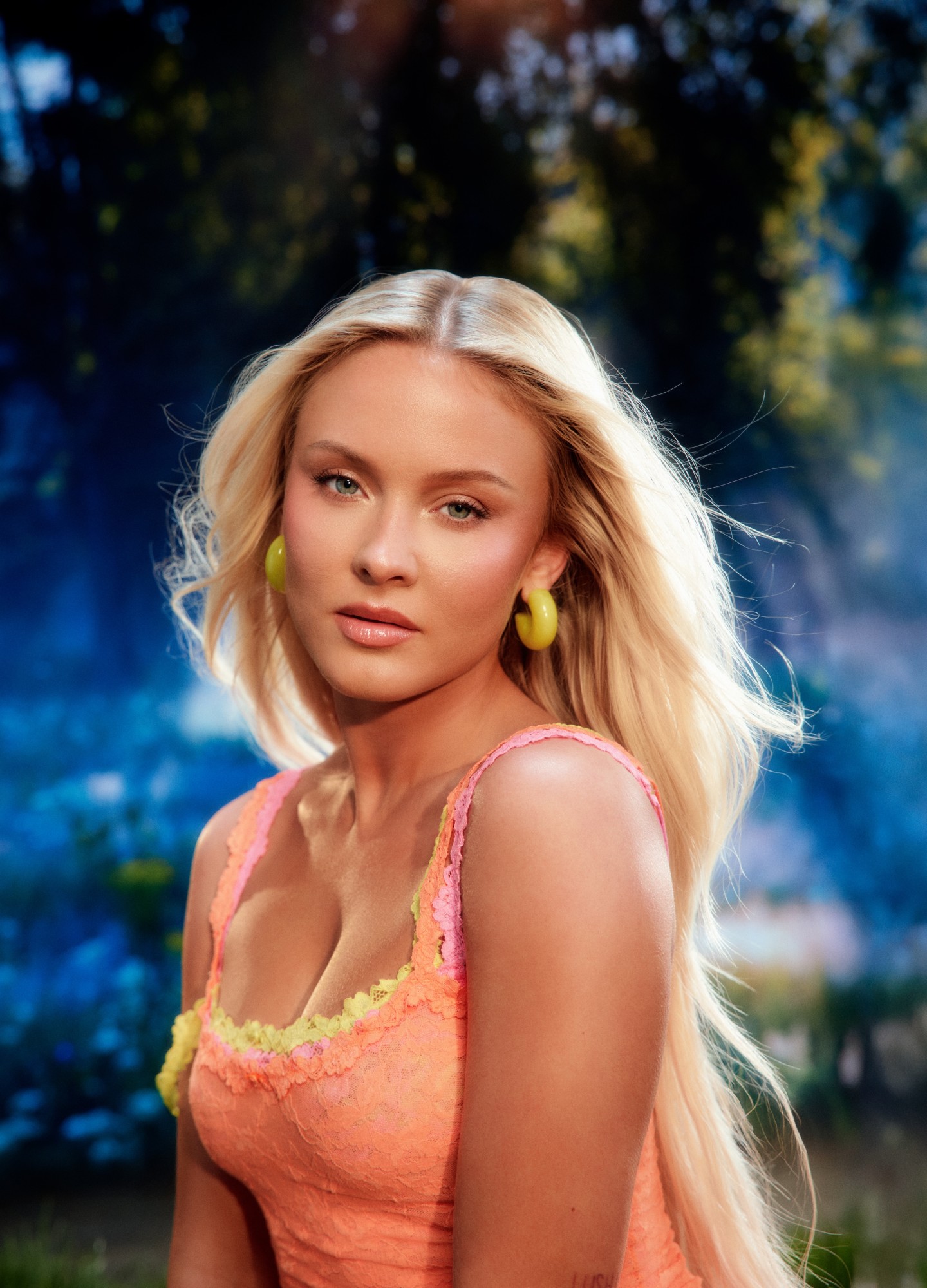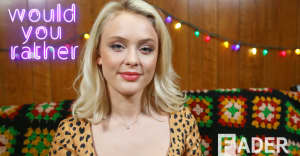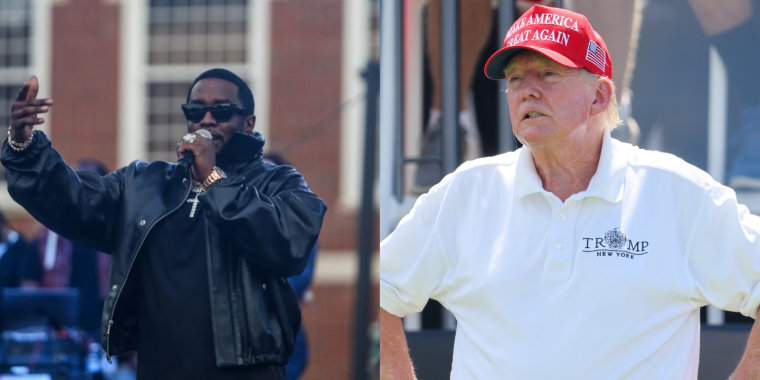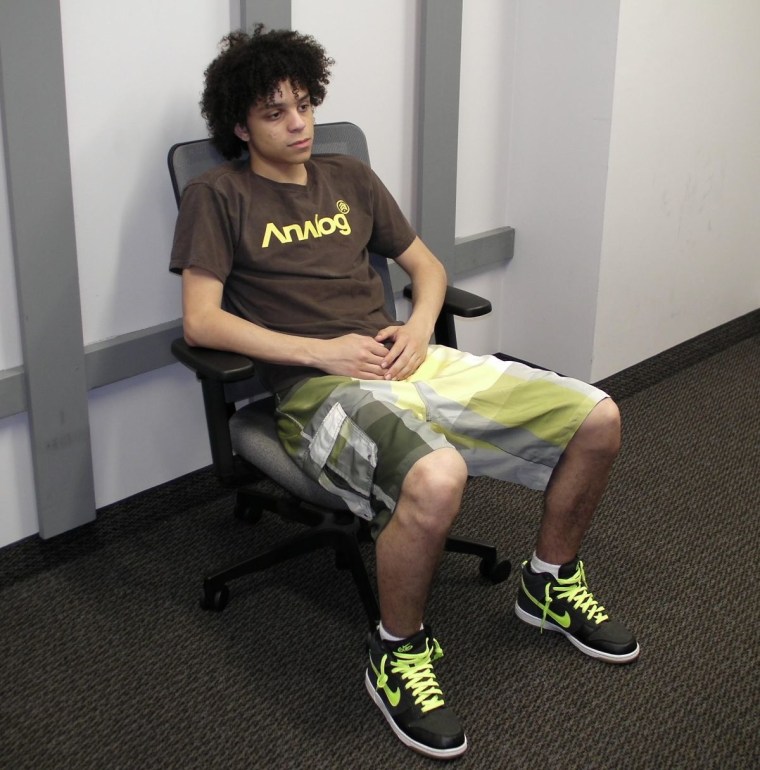Midnight Sun, she just might”>
Charlotte Rutherford
A couple days ago I saw a TikTok comment that neatly summarizes the year Zara Larsson has been having: “she’s an opener apparently, yet I’ve seen so many vids of her and not one of the actual other artist LOL,” a user wrote, referencing a recent wave of content centered around the singer belting her viral single “Midnight Sun.” The “other artist” in question is Tate McRae, for whom Larsson has been opening on tour since early September. It’s no shade to McRae, but rather a testament to the uncanny moment the Swedish pop star has found herself in as pop music’s newest main girl.
Blinking onto Zoom a few days later, Larsson, with her blonde extensions in a bun and lounging in gray sweats, echoes as much: “[The tour] has been a really nice introduction for a lot of the U.S. fans,” she says.
That Larsson needs an introduction is fascinating in itself. At 27, she’s already over a decade into her career, with multiple chart-topping hits under her belt including 2016’s “Never Forget You” with MNEK, and Clean Bandit’s EDM phenomenon “Symphony.” Despite being a near constant presence on American top 40 radio, Larsson’s ubiquity never reached the level of a household name stateside. But something’s changing, online and personally, that’s leading to Larsson feeling like she’s finally getting her due — and just at the right time.
“When I started out, I didn’t write songs, I just wanted to be on stage,” she says of her career until now. “I’ve never created a world and a vibe, because I’ve never really been as involved as I’ve been now.”
Out September 26 and anchored by the colossal delight that is its lead single, Larsson’s new album Midnight Sun indeed contains a certain je ne sais quoi that’s absent in her previous work. The record, an exuberant burst of maximalist, pleasure-seeking Swedish pop, shows an artist who’s had a creative breakthrough with her visuals, marketing, and god-given talent. Previously, one might’ve considered Larsson a vocalist who appeared on songs. Now, tracks like “Crush,” “Hot & Sexy,” and the evocative “Puss Puss” position Larsson as a bona fide artist, one with a point of view that’s flirty, fun, and refreshingly unserious.
As she enters the next peak of her career — “I’m really not trying to lean back on what I’ve done,” she says — Larsson talked to The FADER about being inspired by Lisa Frank and sampling Tiffany Pollard, dealing with competition as a female pop singer, and why she’s no longer on Twitter.
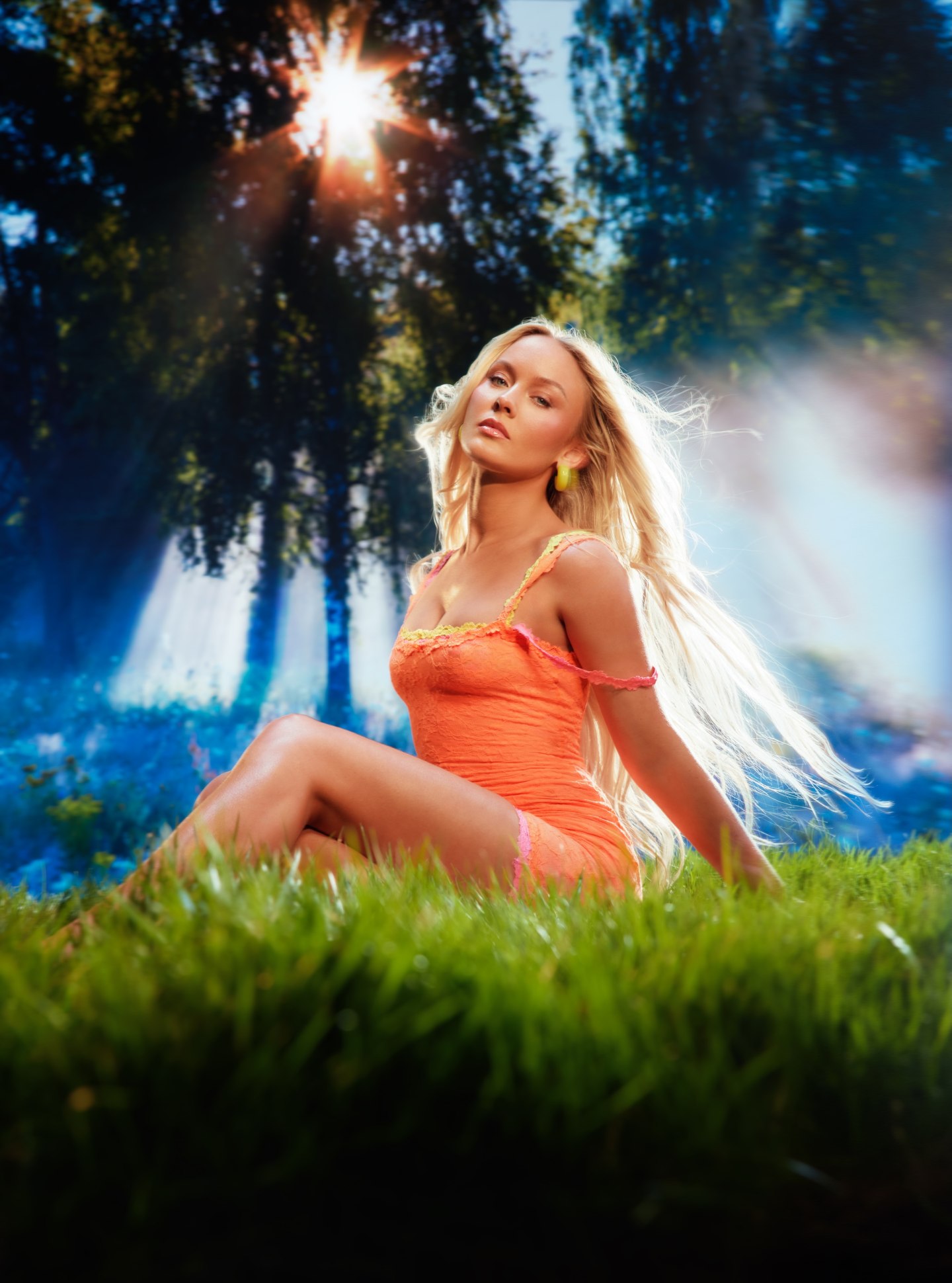 Midnight Sun, she just might”>
Midnight Sun, she just might”>
Charlotte Rutherford
The FADER: I have so many questions about the new era and the aesthetic. But first, “Midnight Sun.” How do you hold the note for so long? Is there a special technique?
Zara Larsson: [Laughs.] I always worry a little bit when I’m writing the songs because [I think], how am I gonna do this live? In the studio you can cheat and cut, but I was thinking I really want to do this live. We did it in the studio where you could just redo it a million times and I was kind of struggling in the studio, but when I go on stage and I hold the microphone and it’s live, it’s like something clicks in me. I just do things on stage that I never am able to do in the studio, like hold different notes or take a higher note than the one that I did in the booth. I don’t know if it’s the adrenaline, I don’t know if it’s the energy, I don’t know if it’s my listening, but something happens in me when I go on stage. You just hold a note.
Let’s talk about building this world and the aesthetic because you’re collabing with Lisa Frank and that very girlish Y2K magical vibe is all over this world.
Lisa Frank was such a full circle moment because my original idea was to have a really nymph-y [vibe]. There’s so many amazing folk tales from Sweden about all these different women in the woods that are kind of mythical and I wanted to incorporate that into the aesthetic, but in a city girl way. There’s this melancholy in our music and in the folk tales, like we do have beautiful, light, bright summers, but I think it’s tainted our culture in general by this really long period of darkness that we have. The Lisa Frank thing intentionally or not really inspired the colors and the feeling. And then it kind of opened the door to like, Barbie mermaid core.
I take [music] seriously, but it’s not that serious, you know?
What was the idea behind the giant butt in your “Crush” video?
That one is just so silly. If you’re a fan fan and you’ve been following me for a while, you’ll know I’m not a mysterious person. I want to bring more of my personality into the music and into the songs because I just don’t take it.. I take it seriously, but it’s not that serious, you know? Humor is something I always appreciate. For “Crush,” we wanted the crush to be symbolized by a spider, and then it was Grant [James Thomas] who directed the video, he was like, “What if you got a sexy allergic reaction?”
It was really fun to wear the padding. What was so crazy is that after I had it on for a few hours, I was like, “This looks kind of natural.” I don’t know if it’s because… like you see bodies like that on social media when I scroll Instagram and TikTok, and it’s like, shit, some women look like that. I just felt like a Miami baddie. It doesn’t really have a deeper meaning.
Was that same “I just wanna have fun” vibe the intention behind including Tiffany Pollard’s viral Big Brother rant on “Hot & Sexy”?
Me and Uzo Emenike, who executively produced the whole album, we sometimes go and watch her best moments just to have a good laugh. I don’t know the whole speech because it’s long, like she can talk. Sometimes I’m like, where do these words come from? But she’s iconic. She came to a party that we had and she was so sweet and such an icon and a legend for reality TV, but also the internet.
We wanted to sample that specific sound bite and then we were like, shit, it’s gonna be so long to go through the [licensing] process. [Pollard] doesn’t own the soundbites, we have to call the company that produced it [Big Brother]. Then we were like, “Should we just ask her to come in the studio and re-say her words?” She was like, “Hell yeah, I’ll be there.” So she pulled up to the studio and she was like, “beautiful, fly, hot, sexy.” She was so down for it.
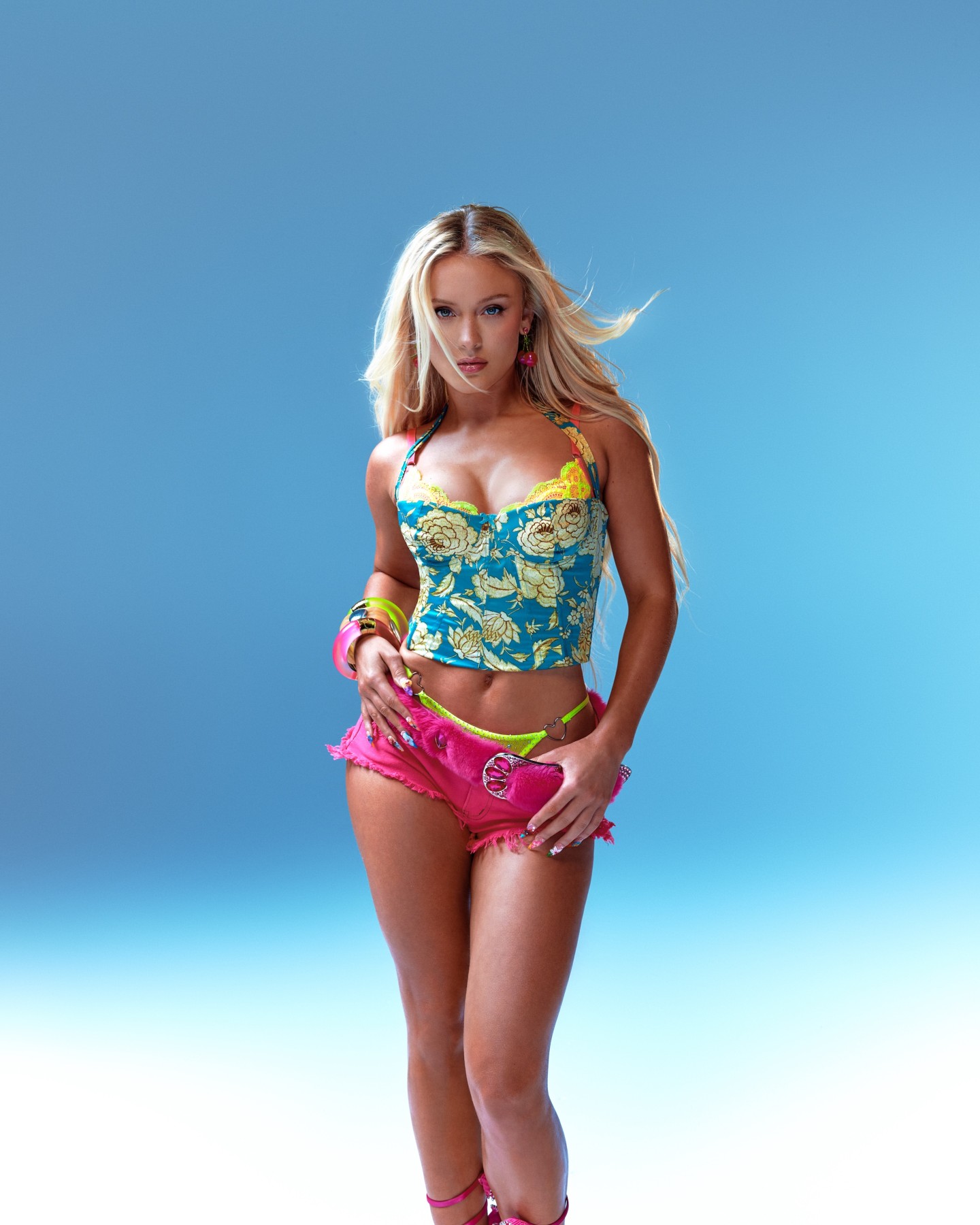 Midnight Sun, she just might”>
Midnight Sun, she just might”>
Charlotte Rutherford
Was she familiar with your work when you reached out?
She didn’t say if she was or not. But I feel like there’s a lot of fun moments on this album and for people to get to know me a bit more, who I am as a person and what I think is fun.
I want to talk about the other side of this record, which is fun, but also gets very vulnerable. On “The Ambition,” you get very honest about how you feel about your career and your experience in the industry. There’s this line where you say, “Everything is competition.” Do you feel like pop music specifically is inherently more competitive than other genres?
I don’t really know what it’s like for people outside of [pop music], but I would say from what I’ve seen, and how I feel, it gets really competitive, especially in pop, and especially with women. It’s not even really the artists themselves always, it’s like so many things around it as well. It’s being compared by numbers and fans and awards and streams and tickets, it’s just so many things to measure, but it’s also weird because music is so subjective. What’s better and what’s worse, you can’t really say because it’s just a matter of style and taste.
I feel like I am a completely different person today than I was even three years ago. I’m at a place now where I don’t feel like I have to compare myself to others because I’m so confident in what I have made and what I’m doing. But I also have deleted Twitter or X because I was just like, I can’t be on here for my ego.
It gets really competitive, especially in pop, and especially with women. What’s better and what’s worse, you can’t really say because it’s just a matter of style and taste.
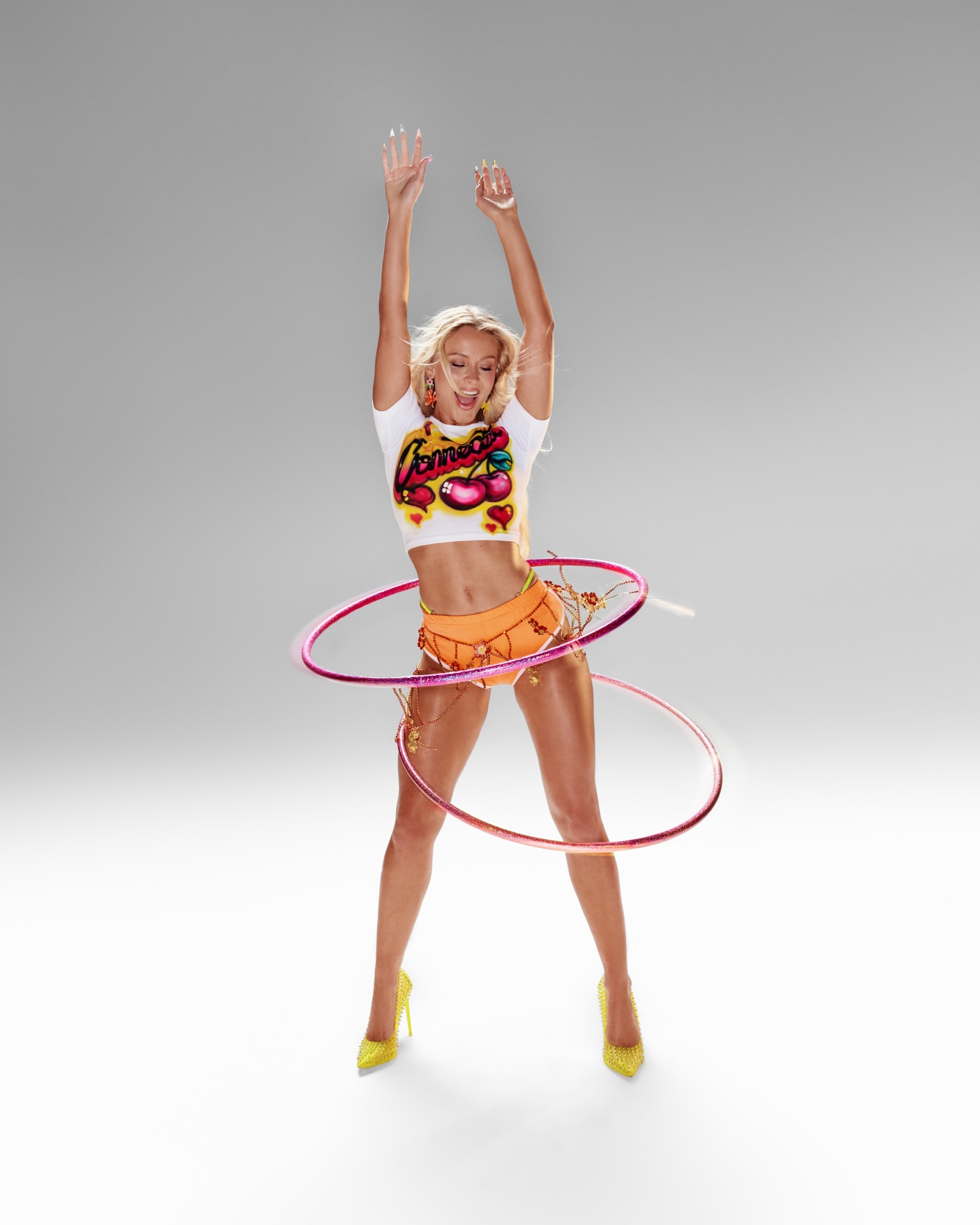 Midnight Sun, she just might”>
Midnight Sun, she just might”>
Charlotte Rutherford
People love you on Twitter.
I will be up all night just scrolling and be like, oh fuck yeah. It’s like a drug and it’s like, the validation of it is like a drug, but I know one day, if it’s not today, it will flip. I will do something that somebody doesn’t like, or they compare me to something, and then it will be like, “fuck this girl.” I just know that doesn’t do me any well.
I am already competing with myself because I have done [music] for such a long time, so I’m also comparing the success that I had so early on with what I did after that. I had success and then flop, and then success and then flopiana, and now I’m like, I feel the success again. But I know it goes up and down.
I’m just a human and it does get to me and I don’t want it to get to me. But I think it’s a lot harder in general being a woman. And I’m competitive, I do want to be the best, I do want people to say she’s amazing, that’s why I’m an artist.
So that lyric, “I want to be number one” — you still stand by that even though you’ve experienced that number one isn’t a permanent thing?
I know it’s a brief moment in time, and you can’t be number one forever, that’s just the nature of it, but I just want to be it once, please just once. I just want to taste it.

